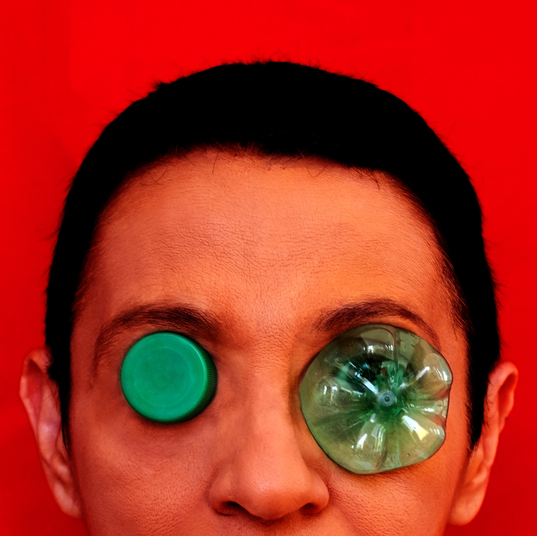Brazilian artist Berna Reale has just released her new track, Mayday Mayday Mayday (feat. Will Kieff). The song emerges as an urgent warning in the face of the environmental crisis threatening the planet, addressing issues such as ecosystem destruction, air and water contamination, and human indifference to climate collapse. This is the first time the artist has engaged with this theme in her career, marking a new development in her artistic practice.
The track’s title references the international distress signal used in aviation when an aircraft is in critical condition—“Mayday” is repeated three times to indicate imminent danger. The choice reinforces the alarming tone of the environmental message embedded in the work. Written by Reale herself, the lyrics blend critique and poetry, serving as a call for collective action.
In its arrangements, the track incorporates excerpts from the summer and winter concertos of Vivaldi’s The Four Seasons, intentionally juxtaposing these typically distinct movements. The fusion alludes directly to the climate disruption affecting the planet, making the seasons increasingly unpredictable and unstable.
The release coincides with the global debate on environmental issues, anticipating the 30th United Nations Climate Change Conference (COP 30), which will be held in Belém do Pará in 2025—the same city where Berna was born and continues to develop much of her artistic production. Within this context, Mayday Mayday Mayday stands as an artistic manifesto aimed at amplifying environmental discussions from a symbolically and politically charged site in the Amazon region.
Developed in collaboration with local artists such as rapper Will Kieff and musician Jacinto Kahwage, the track seeks direct communication, breaking through language, accent, and nationality barriers. By joining her voice with Kieff’s, Reale embraces the power of trap music and the spoken word as tools for mobilization and sensory impact.
Recognized for her career in the visual arts, Berna Reale is one of the most prominent figures in Brazil’s contemporary art scene and among the country’s leading performance artists. She began her career in the early 1990s and has since used her own body as the focal point of performances, photographs, and videos that critically expose mechanisms of violence, repression, and silencing present in social structures. Works such as Palomo, Singing in the Rain, Quando Todos Se Calam, and Limite Zero stand out for their symbolic strength and provocative use of public space. In her practice, Reale pushes the boundaries between fascination and repulsion, revealing the contradictions of a society that consumes violence even as it denies it.
